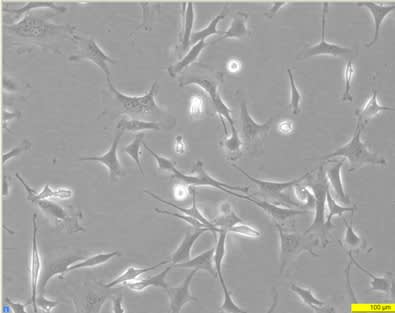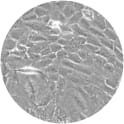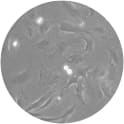MEF ULK1/2 WT(SV40) Cell Line
Invented by Dr Sharon Tooze from The Francis Crick Institute
Invented at Cancer Research UK London Research Institute: Lincoln's Inn Fields
- Datasheet
- References (4)
- Inventor Info
Info
| Catalogue Number | 152607 |
| Antigen/Gene or Protein Targets | ULK1 |
| Host | Mouse |
| Tissue | Embryo |
| Disease Keywords | Cancer, neurodegeneration |
| Relevance | The MEF ULK1/2 WT cell line can be used as a wild-type control with ULK1 and ULK2 cell lines and is useful for studying ULK1-and ULK-2 dependent processes, including autophagy. Mouse embryonic fibroblasts derived from a wild-type littermate to the ULK1 KO and immortalized with SV40 large T-antigen. |
| Production Details | Cells were derived from mouse embryos at E13.5. Embryos were decapitated and eviscerated and the remaining tissues were dissociated to obtain MEFs. This cell line is a primary cell line immortalized by SV40. |
| Research Area | Apoptosis and Programmed Cell Death, Cell Signaling & Signal Transduction, Metabolism, Neurobiology |
| Growth/Phenotype Keywords | Autophagy |
| Recommended Growing Conditions | DMEM + 20% FCS + 2mM Glutamine + pen/strep |
| Cellosaurus ID | CVCL_5A51 |
References: 4 entries
McAlpine et al. 2013. Autophagy. 9(3):361-73. PMID: 23291478.
Regulation of nutrient-sensitive autophagy by uncoordinated 51-like kinases 1 and 2.
Europe PMC ID: 23291478
Chan et al. 2009. Mol Cell Biol. 29(1):157-71. PMID: 18936157.
Kinase-inactivated ULK proteins inhibit autophagy via their conserved C-terminal domains using an Atg13-independent mechanism.
Europe PMC ID: 18936157
Add a reference
References: 4 entries
McAlpine et al. 2013. Autophagy. 9(3):361-73. PMID: 23291478.
Regulation of nutrient-sensitive autophagy by uncoordinated 51-like kinases 1 and 2.
Chan et al. 2009. Mol Cell Biol. 29(1):157-71. PMID: 18936157.
Kinase-inactivated ULK proteins inhibit autophagy via their conserved C-terminal domains using an Atg13-independent mechanism.
Add a reference













